Gush Etzion Junction: The deadly roundabout
- Published
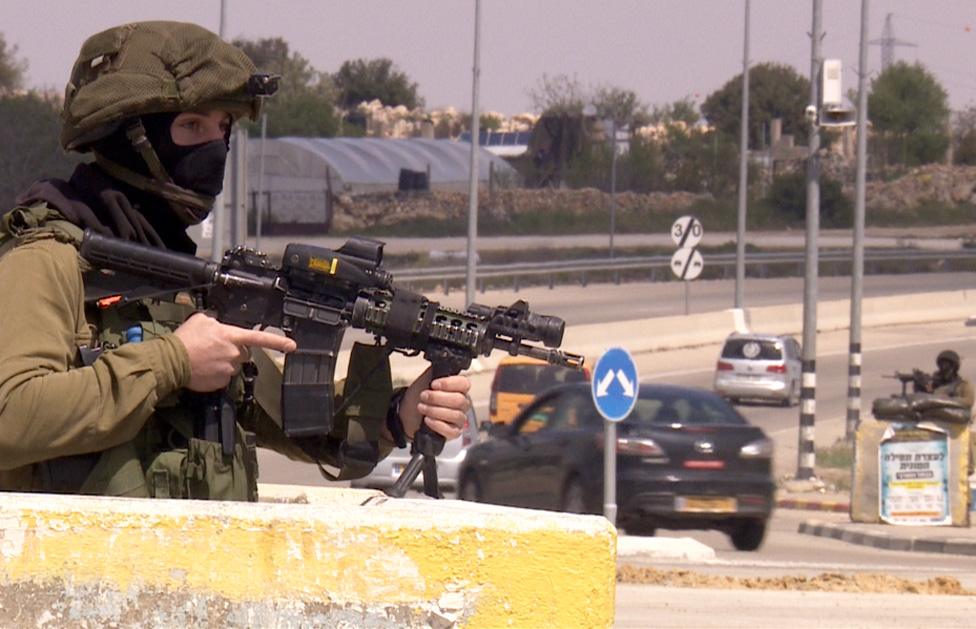
One roundabout near Jerusalem has become a symbol of violence between Israelis and Palestinians. The Gush Etzion Junction has been the site of a dozen deadly incidents in recent months.
As we turned on to Route 60, from Hebron towards Jerusalem, we find Israeli police blocking the way. We've just interviewed the father of a Palestinian teenager, shot dead last year after stabbing an Israeli soldier at a road junction.
Now another Palestinian man has been killed while allegedly carrying out an attack at the very same spot, up ahead.
The Gush Etzion Junction is a roundabout where Israelis and Palestinians constantly cross paths. And recently it has become one of the most dangerous places in the West Bank. There have been a dozen deadly incidents since October.
"So, this junction - every stone, every flag, every bus stop - has seen a terror attack," says Daniel Hanson, a British-Israeli security officer for Jewish settlements nearby. "Unfortunately, where we're standing we lost two civilians in two separate attacks."

He shows me mounds of stones topped with Israeli flags where a female student and a reservist soldier were killed.
The Rami Levi supermarket next to the roundabout bustles with Israeli shoppers pushing trolleys. Most live in the Gush Etzion bloc of more than 20 settlements. Many now carry guns - either M16 rifles like Daniel - or small handguns like the one he tells me his wife keeps in her handbag to protect herself.
Israel's military occupation of the West Bank and the expansion of settlements are often cited as reasons for Palestinian anger. But Daniel believes incitement is driving the upsurge in attacks.
"On Palestinian television we see videos and cartoons calling to go out and become a shaheed, a martyr, 'Go out, stab a Jew, stab an Israeli'," he says. "They want to glorify their name, glorify Islam."
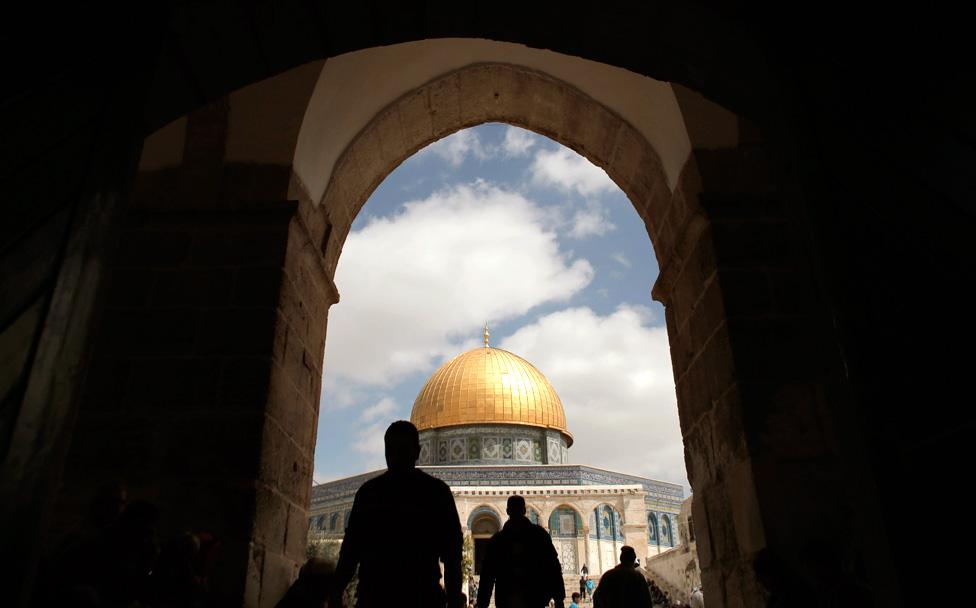
The current escalation was triggered, at least in part, by Palestinian fears about the al-Aqsa Mosque compound in Jerusalem's Old City. The site is holy to Muslims, who call it the Noble Sanctuary, and Jews, who call it Temple Mount.
As Jews visited during religious holidays, there were reports - officially denied - that Israel had plans to change a rule forbidding non-Muslims from praying there.
But in Hebron, the father of the 19-year-old who carried out a stabbing at the Gush Etzion Junction says his son's motivations weren't simply religious. He had seen young Palestinian attackers and alleged attackers killed by the Israeli army and got drawn into the cycle of violence.
"The situation in Hebron was very difficult at that time," Nadi Abu Shkheidem tells me. "Izz al-Din was always following events on Facebook."
"Many were shot dead at the checkpoints, including girls. This heated the anger of our young men. They went to avenge them - before al-Aqsa, before the land, before everything."

Find out more
Watch Yolande Knell's documentary Death at the Junction online - it was first broadcast on Our World on BBC World TV
From Our Own Correspondent has insight and analysis from BBC journalists, correspondents and writers from around the world
Listen on iPlayer, get the podcast or listen on the BBC World Service or on Radio 4 on Saturdays at 11:30

At Alon Shvut, a settlement by the junction, the sons of Yaakov Don lead mourning prayers at their synagogue. The teacher, known for his broad smile, was murdered last November.
A Palestinian gunman opened fire at cars heading to the roundabout. He also shot dead an American student and a Palestinian driver.
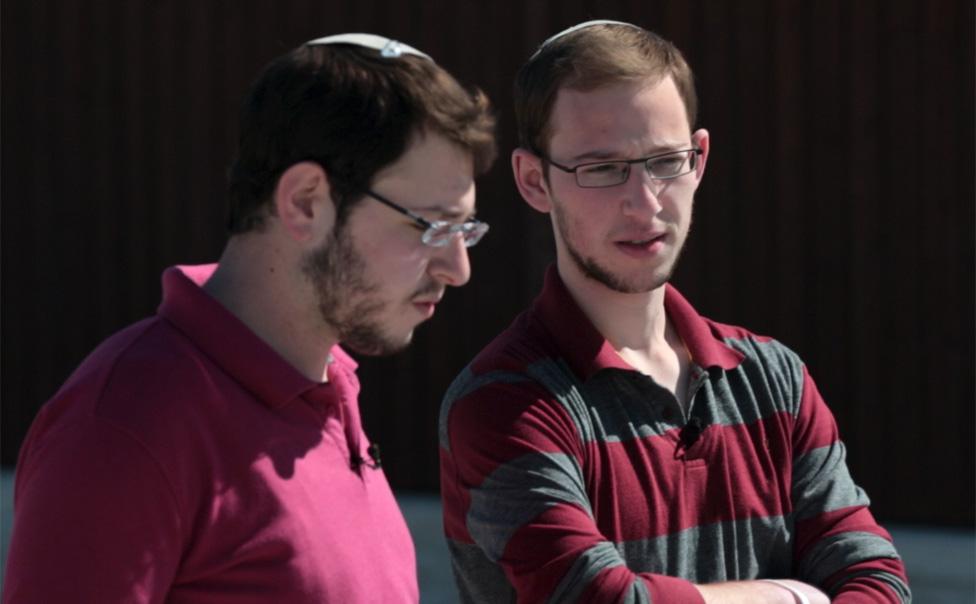
Maor Don (right) with his brother
"He didn't even regret killing the Palestinian," says Maor Don. "These people are so full of hate. They just want to kill and don't want any peace at all."
Despite their terrible experience, the Don family is determined to continue living in Gush Etzion. "It's important to stay," Maor says. "Historically this is a very important place for Jewish people."
In the early 20th Century, Jews bought land in this area. But in fighting with Arab armies in 1948, they were forced out or killed. After Israel captured the West Bank in the 1967 war, Jews returned.
Settlements are seen as illegal under international law but Israel disagrees.
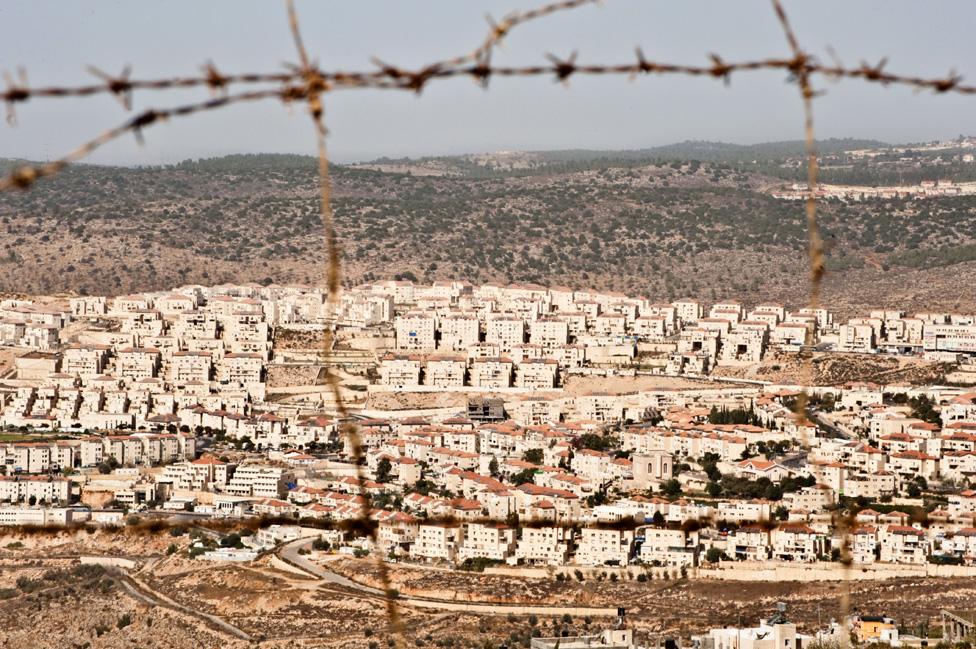
Now Gush Etzion is 30 times larger than it was historically. Areas of Palestinian land have been added to it causing deep resentment. But at the same time, 4,500 Palestinians work in Gush Etzion. It's an uneasy economic relationship that many Israelis see as a model for peaceful co-existence.
In the Palestinian village of Khirbet Zkarya, surrounded by settlements, there's a different perspective.
"It's difficult," says Mohammed Saad, a farmer, as he prunes his grape vines. "Israel forbids us from building and we've lost some land. Our harvests aren't enough, so we must work in the settlements to raise our children."
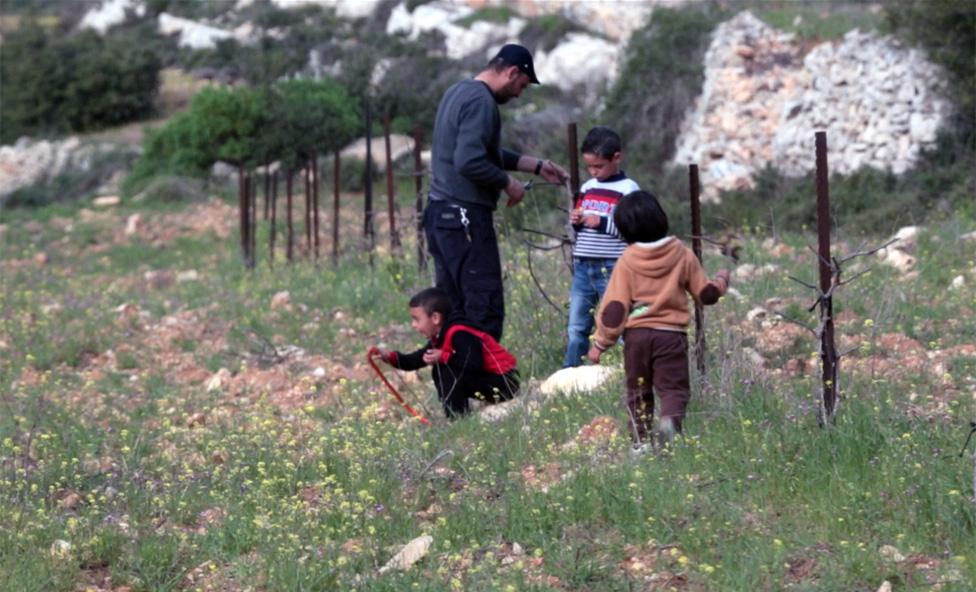
Since the recent unrest, new security restrictions at the Gush Etzion Junction are having an impact here. "We're now isolated," Mohammed says. "There's a new checkpoint and only people with an ID for Khirbet Zkarya can access it."
At the roundabout local settlers are protected by heavily armed soldiers. For them, this site is a symbol of the dangers they face every day.
For Palestinians it represents Israel's occupation. And I expect more bad news from the Gush Etzion Junction.
With no hope of a political solution in sight, it offers a worrying glimpse of a future where both sides in this conflict continue to live with simmering tensions and eruptions of violence.

More from the Magazine
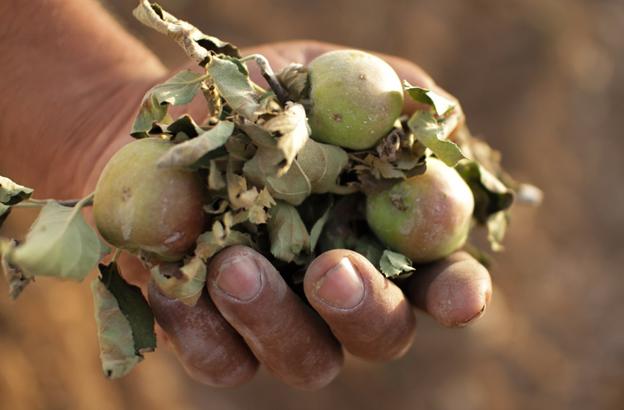
In June 2014, Daniel Silas Adamson wrote about a Palestinian Christian family holding on to the farm it had owned for 98 years in the West Bank.
The Christian family refusing to give up its Bethlehem hill farm

Subscribe to the BBC News Magazine's email newsletter to get articles sent to your inbox.